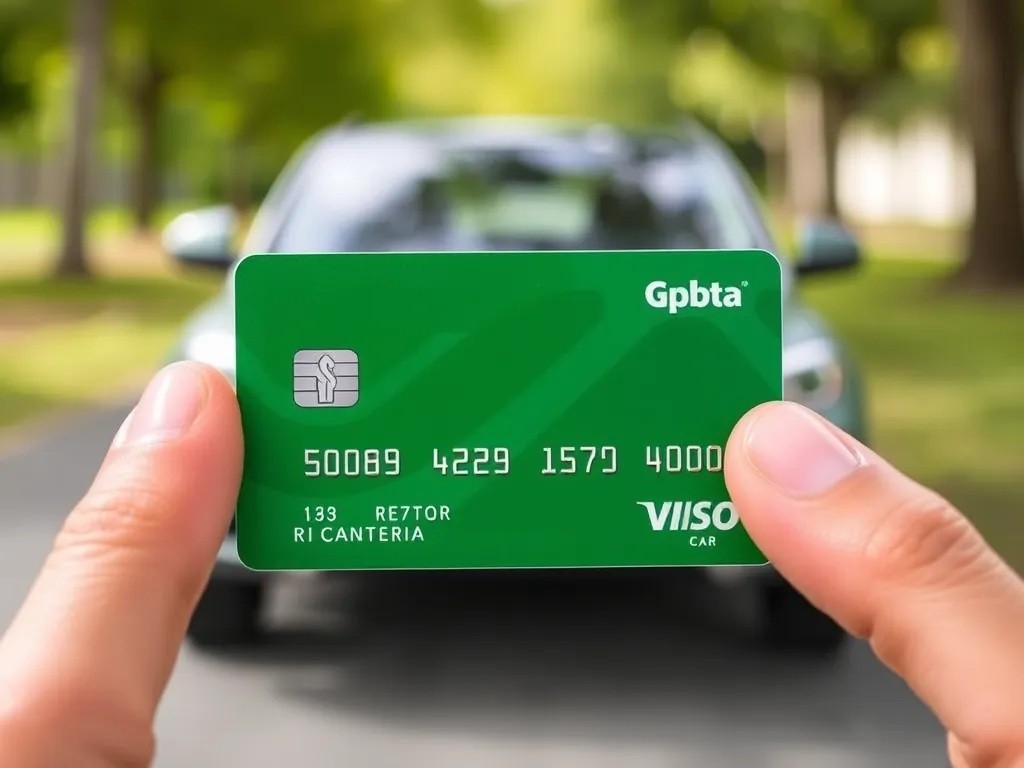The short answer is yes, you can rent a car with a debit card, but it comes with certain conditions and restrictions. While credit cards remain the preferred payment method for most car rental companies, the industry has gradually become more accommodating to customers who prefer or need to use debit cards. Understanding the requirements and limitations can help you prepare for a smoother rental experience.

Why Rental Companies Prefer Credit Cards
Before diving into debit card rentals, it's important to understand why rental companies traditionally favor credit cards. Car rental agencies use credit cards as a form of security deposit and insurance against potential damages, unpaid fees, or traffic violations. Credit cards offer better fraud protection and guarantee that funds are available, making them less risky for rental companies.
Debit cards, on the other hand, draw directly from your checking account, which means the rental company must verify sufficient funds and may place holds that temporarily reduce your available balance. This creates additional administrative work and financial risk for the company.
Major Rental Companies That Accept Debit Cards
Most major car rental companies now accept debit cards, though policies vary significantly between companies and locations. Here's what you need to know about the biggest players in the industry:
Enterprise
Enterprise is generally considered one of the most debit card-friendly rental companies. They accept debit cards at most locations for customers who provide proof of a return travel ticket for non-local rentals. You'll need to present two forms of identification and proof of insurance.
Hertz
Hertz accepts debit cards at many airport and neighborhood locations, but requirements include a credit check at the time of rental. You must be at least 25 years old, and additional documentation such as proof of insurance and return travel itinerary may be required.
Budget
Budget allows debit card rentals at most locations with similar requirements to Hertz. Expect a credit check and be prepared to show multiple forms of identification, proof of return travel, and evidence of full coverage insurance.
Avis
Avis permits debit card use but typically requires renters to be at least 25 years old. They may conduct a credit inquiry and require proof of return travel for airport rentals. Additional restrictions often apply to premium and luxury vehicle categories.
Common Requirements for Renting With a Debit Card
While specific policies differ, most rental companies impose similar baseline requirements when accepting debit cards:
- Age restrictions: Most companies require you to be at least 25 years old when using a debit card
- Credit check: Many agencies run a credit inquiry to assess risk
- Valid driver's license: A current, valid driver's license issued in your name
- Proof of return travel: A return airline, train, or bus ticket showing you'll return to the rental location
- Proof of insurance: Personal auto insurance or proof of coverage
- Utility bill: Recent utility bill matching your current address
- Additional identification: Secondary ID such as a passport or government-issued ID

Financial Holds and Deposits
One of the most significant considerations when renting with a debit card is the deposit hold. Rental companies typically place a hold on your checking account that can range from $200 to $500 or more, depending on the vehicle type and rental duration. This hold can remain on your account for several days or even weeks after you return the vehicle.
The hold amount is in addition to the rental cost itself, meaning you need substantially more money in your account than just the rental fee. This can create cash flow challenges if you're not prepared for it. Unlike credit card holds that don't affect your spending power, debit card holds directly reduce your available checking account balance.
Vehicle Restrictions
When renting with a debit card, you may face limitations on vehicle selection. Many companies prohibit debit card customers from renting luxury vehicles, sports cars, premium SUVs, or specialty vehicles. These restrictions exist because higher-value vehicles represent greater financial risk to the rental company.
Some locations may also limit the rental period or impose geographic restrictions on where you can drive the vehicle when paying with a debit card.
Tips for Successfully Renting With a Debit Card
Call Ahead
Always contact the specific rental location before your reservation date. Policies can vary dramatically between locations, even within the same company. Confirm their debit card policy, required documentation, and deposit amounts.
Gather Documentation in Advance
Collect all necessary documents before arriving at the rental counter. Having everything ready prevents delays and reduces the chance of being turned away.
Check Your Account Balance
Ensure you have enough funds to cover the rental cost plus the security deposit hold. Add a buffer to avoid overdraft fees if the hold amount is higher than expected.
Understand Your Insurance Coverage
Know what your personal auto insurance covers for rental vehicles. You may need to provide proof of coverage or purchase the rental company's insurance, which increases your total cost.
Book Early
Making reservations in advance gives you time to prepare documentation and confirm policies. It also ensures vehicle availability, as debit card customers may have limited vehicle options.

Alternatives to Consider
If renting with a debit card proves too restrictive or expensive, consider these alternatives. Some rental companies accept prepaid debit cards with major credit card logos, though availability is limited. Peer-to-peer car sharing services like Turo may have more flexible payment options. You might also ask a friend or family member with a credit card to rent the vehicle on your behalf, though this requires trust and coordination.
Conclusion
Renting a car with a debit card is definitely possible, but it requires more preparation than using a credit card. By understanding rental company policies, gathering necessary documentation, and ensuring adequate funds in your account, you can successfully navigate the debit card rental process. While the experience may involve additional steps and restrictions, it remains a viable option for travelers who prefer or need to avoid credit cards.
The key to success is thorough preparation and clear communication with the rental company. Take time to research policies, call ahead to confirm requirements, and have all documentation ready when you arrive. With proper planning, renting a car with a debit card can be just as convenient as any other rental transaction.
